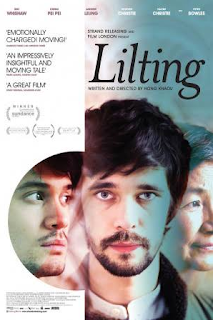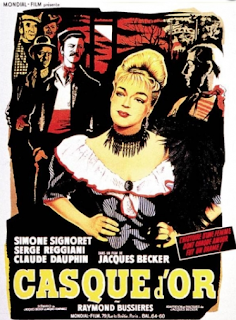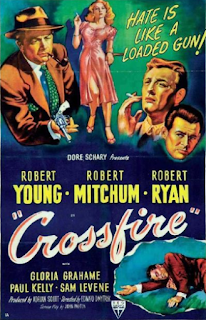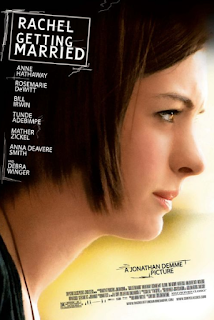Lilting (2014)
An elderly woman (Cheng Pei Pei), living in a retirement home, is visited by her son (Andrew Leung). They argue a little, both because he forgot to bring her a CD that she had asked him and because she hates living in that place. Then she tells him about a man she has met and with whom she has been sort of dating, and they tenderly joke about it. Only her son isn't actually there. She's just remembering their last conversation together. Her son is dead. That's the opening scene of Lilting, the debute-feature of British-Cambodian director Hong Khaou who proves himself to be someone to keep an eye on. Lilting is far from perfect, but it's a strong first work that shows the director's sensitive, empathetic touch.
The woman is called Junn and she's played by Cheng in an outstanding performance of remarkable subtlety and grace. And she is matched by Ben Whishaw, who gives an aching, soulful portrayal of Richard, the companion of Junn's late son for four years. Junn doesn't know her son was gay and she cares very little about Richard, whom she believes to be the cause of her living in the retirement home. But Richard feels for her: perhaps it's sometimes he needs just as much as she does, but he decides to help her. So he enlists the help of an interpreter (Naomi Christie) so that she can help Junn and her date Alan (Peter Bowles) to understand each other.
The film's biggest problem are due to the screenplay, written by Khaou himself who seems to be far more assured as a director than a writer. Aside from Junn, who is given a background and a history, the other characters are rather limited and are given the bare minimum to serve their function within the film's plot. Alan is such a paper-thin character that it's hard for the audience to care for his relationship with Junn which often feels like a distraction from the far more interesting dynamic between Junn and Richard. Richard too seems to exist solely around his dead lover: there is little else about him that we get to know and the only reason why he does not feel like a stock character is because Whishaw valuably tries to fill in the gaps left by the screenplay. There are several moments in which the movie deals with potentially interesting topics such as cultural integration but it does not spend enough time on them to ignite a thought-provoking discussion.
The part in which the movie really thrives is its depiction of the complicated relationship between Junn and Richard. They do not speak a word of each other languages, and yet they form an understanding that goes beyond that. Cheng and Whishaw share an incredibly poignant chemistry and they powerfully convey this connection that trascends words and language barriers and finds common ground in their love for the deceased and their grief over the accident. Christie also gives an interesting performance as the kind interpreter, Vann: she adds a lot to the scenes despite being a largely passive presence and Christie effectively portrays the character's awkwardness as she feels like an intruder between the two but also quietly absorbs everything that happens around her. She ably turns a very limited role into the audience's surrogate.
Lilting is a film that would have benefited from a more focused screenplay with fewer distractions from the plot's core, less superfluous characters and a stronger grasp on the various topics it tackles. But Khaou treats his characters with incredible delicacy, understanding and a refreshing lack of judgement and he favours subtlety and intimacy over melodrama. Whenever in the least compelling moments, his unique vision keeps you hooked. And Cheng's performance is a revelatory, underrated marvel. She is heartbreaking at revealing the loneliness of a woman who feels abandoned by her own son and lost in a country she thinks she doesn't belong to. But she also embodies her quiet strength and dignity. She is Lilting's beating heart.
70/100




Haven't seen this, but it seems to confirm by view of Wishaw as an actor who thrives in smaller films.
RispondiEliminaI'd agree he's given far more to do in smaller, independent films.
Elimina